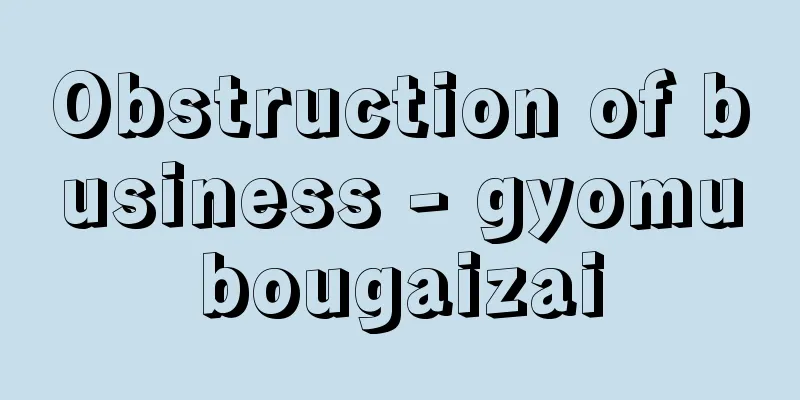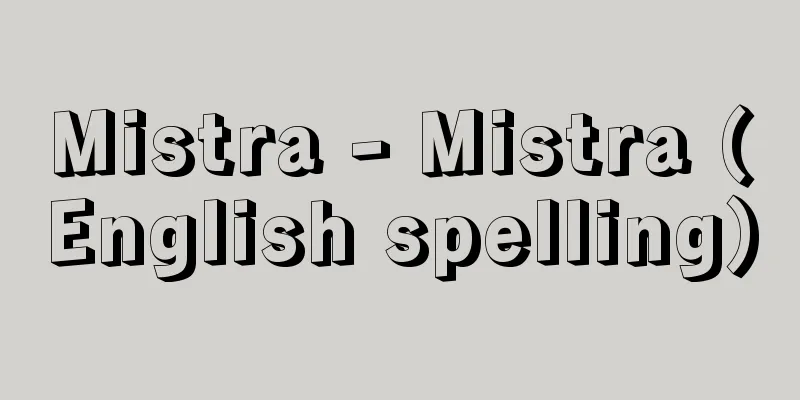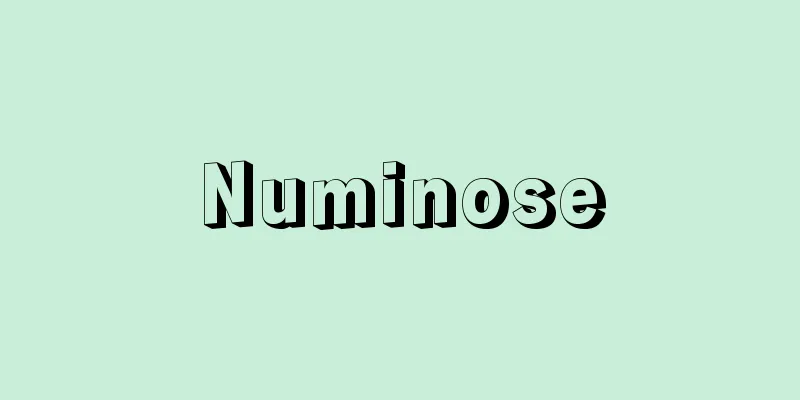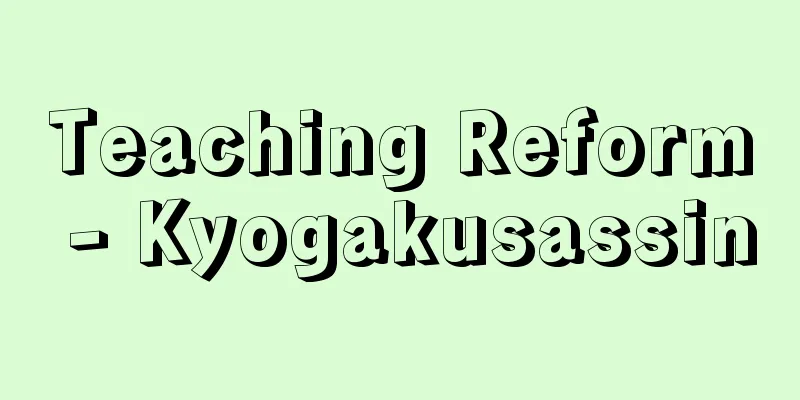Obstruction of business - gyomubougaizai

|
It refers to the crime of spreading false rumors or using fraudulent means to obstruct someone's business (obstruction of business in the narrow sense, Article 233, second paragraph of the Penal Code), and the crime of using intimidation to obstruct someone's business (obstruction of business by intimidation, Article 234 of the Penal Code). Here, "person" includes both natural persons and corporations. Furthermore, "business" refers to activities that are carried out to a certain extent in social life, such as the activities of a company, NPO, political party, or labor union. Unlike business in professional negligence, it does not include activities in private life (such as housework or driving a car) or illegal activities that do not deserve protection, and it does not have to involve danger to a person's life or body. "Obstruction" does not require that business has actually been obstructed (a result), but it is sufficient if there is a possibility of it being obstructed (a danger). If a public official's duties (public affairs) are obstructed by violence or intimidation, the crime of obstruction of public affairs is established under Article 95, paragraph 1 of the Penal Code, so the big question is whether the duties covered by this crime are public affairs. In the past, there was a view that no public affairs were considered to be work, or conversely, that all public affairs were considered to be work. However, the current prevailing view and precedents interpret that "official affairs involving power" that involve the use of force, such as the arrest of a criminal by a police officer, are not included in work, but "non-official affairs involving power", such as general affairs of the state or local government, school affairs of national or public schools, and meetings and committee activities of the National Diet or local assemblies, are included. It was thought that obstruction of official affairs involving power could be eliminated by one's own power through the use of force, so there was no need to protect against them under this crime. On the other hand, there is also a strong view that even if an official affairs involving power are obstructed by spreading rumors or fraudulent means, they do not constitute obstruction of public affairs, and since they cannot be dealt with by the use of force, the crime of obstruction of business should be applied. [Tetsuro Nawa] [Reference items] | |Source: Shogakukan Encyclopedia Nipponica About Encyclopedia Nipponica Information | Legend |
|
虚偽の風説(うわさ)を流布し、または偽計を用いて人の業務を妨害する罪(狭義の業務妨害罪。刑法233条後段)、および威力を用いて人の業務を妨害する罪(威力業務妨害罪。刑法234条)をあわせていう。ここに「人」とは、自然人のほか、法人も含まれる。また、「業務」とは、会社、NPO、政党、労働組合などの活動のように、社会生活においてある程度反覆して行う活動をいう。業務上過失における業務とは異なり、個人生活における活動(たとえば家事、自動車のドライブなど)や保護に値しない違法な活動は含まず、また、人の生命、身体に対する危険を伴う必要もない。「妨害」とは、業務が現実に阻害されたこと(結果)を必要とせず、そのおそれ(危険)があれば足りる。 公務員が執行する職務(公務)を暴行または脅迫によって妨害する場合は、刑法第95条1項によって公務執行妨害罪が成立するため、本罪の業務に公務が含まれるかが大きな問題となる。この点につき、かつては、いかなる公務も業務に当たらないとか、逆に、公務はすべて業務に含まれると解する見解があった。しかし、今日の通説・判例は、たとえば警察官の犯人逮捕などのように強制力の行使を伴う「権力的公務」は業務に含まれないが、「非権力的公務」、たとえば、国や自治体の一般事務、国公立学校の校務、国会や地方議会の会議や委員会活動などは含まれると解している。権力的公務の妨害に対しては強制力の行使によって自力で排除しうるから、本罪によって保護する必要がないと考えられたのである。これに対して、権力的公務であっても、風説の流布や偽計によってこれを妨害する場合には、公務執行妨害罪にはあたらないし、強制力の行使によって対処しえないことから、業務妨害罪を適用すべきであるという見解も有力である。 [名和鐵郎] [参照項目] | |出典 小学館 日本大百科全書(ニッポニカ)日本大百科全書(ニッポニカ)について 情報 | 凡例 |
<<: Resonance (English spelling)
>>: Xiaomin Communist Party Incident - Gyomin Kyosanto Jiken
Recommend
Fuxin
A prefecture-level city in northwest Liaoning Pro...
Bantu languages - Bantu languages
A group of more than 600 languages of the same o...
Exclusion - Joseki
This is a system that automatically excludes judg...
Ruzicka
A Swiss organic chemist of Slavic descent, born i...
Parasite allergy - Parasite allergy
This refers to allergic reactions seen in people i...
Car Zenshichi
A head of non-human samurai in the late Edo period...
Mering, J.
…It is also called diethylbarbituric acid, and is...
Aso Volcano Observatory
…In the same way, he noticed the existence of dee...
Palace (Taoism) - 9
…In China, a place where Taoist priests live, pra...
Kapp-Lytowicz Uprising - Kapp-Lytowicz Uprising
…On March 13, 1920, a coup d'état was planned...
Shoin-zukuri
A Japanese style of housing perfected in the earl...
Kong Xiangxi
Republic of China politician and businessman. His ...
Onari - Onari
〘Noun〙 ("O" is a prefix) 1. An honorific...
Islamic Embroidery - Islamic Embroidery
...The style is Scandinavian, but the technique i...
tabetic ataxia
...The broad definition of ataxia includes a numb...









